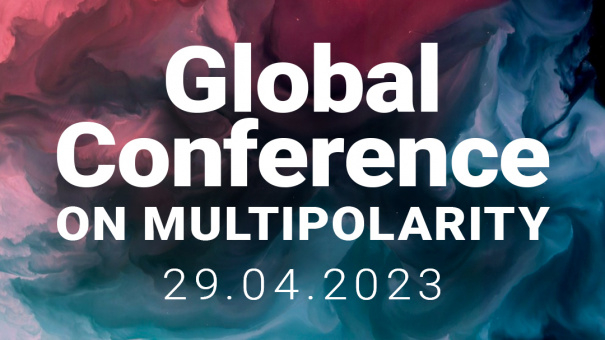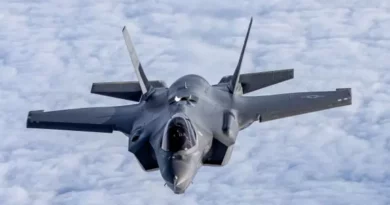The Spiritual Orientation of the West and the Geosophical Multipolarity – Pierre-Antoine Plaquevent
At a time when the international order is undergoing unprecedented disruptions in contemporary history, it is essential to deepen the study of international relations through a metapolitical approach. That is to say, an approach that integrates what Count Joseph de Maistre (1753-1821) referred to as a « metaphysics of political ideas ».
In order to wage the ongoing spiritual war, or « Noomachie » as defined by Professor Alexandre Douguine, we must therefore examine how the actors of the contemporary geopolitical conflict conceive the nature of the Spirit.
This dimension seems fundamental to us because if we seek to understand the ontology of a culture or civilization, we are naturally led to search for the spiritual core that underlies it. For there are no peoples, nations, cultures, or states that are not structured by a spiritual core, even if secularized.
Rationalistic atheism itself, which has now become the common cultural norm of the West, is rooted in a set of non-rational ideas and conceptions, which are made « para-religious ». These ideas emerged underground since the Renaissance and began to emerge as the diffuse ideology of Western elites from the Enlightenment. The term « Enlightenment » itself refers to illuminism and Masonic esotericism.
In the West, after a long historical process, the idea finally emerged that matter would prevail over spirit, and that ultimately, spirit would be a subtle and particularly elaborate stage of matter. According to this idea, matter would evolve continuously by itself and without any external intervention, until it became complex enough to spontaneously generate consciousness and the Spirit. In this evolutionist vision of an existence without a real first spiritual cause – without an arkhè (ἀρχή) – life, consciousness, and the Spirit would be nothing more than successive stages of the same self-created and self-organized matter.
A form of permanent noetic autopoiesis of matter and the whole of reality, perceived as a reversed pantheistic continuum. Reversed, because here it is matter that precedes the Spirit, and not matter that derives from the Spirit, as in the emanationist hypothesis of Plotinian or Brahmanic type, nor is it the Spirit that creates matter ex nihilo, as in the creationist hypothesis of the Abrahamic revealed religions.
This inverted monist spiritual concept, which establishes Spirit as an « evolved » stage of matter, underlies most contemporary Western intellectual, techno-scientific, political, and social orientations. Founding personalities of the current global governance system that now governs the West are or have been imbued with this philosophical orientation. Among many examples, we can cite the influential and eminent British biologist Julian Sorell Huxley (1887-1975), the first Director-General of UNESCO, eugenicist and Darwinian militant who was the father of the term transhumanism. His grandfather, Thomas Henry Huxley, a friend and close associate of Darwin, had already coined the term « agnosticism » in the 19th century in the context of the intellectual confrontation between emerging Darwinian evolutionism and the established spiritual order of the time.
This spiritual orientation constitutes the philosophical background of most of the major societal orientations currently pursued by the West: ecological planning and forced decarbonization of the economy, global biopolitical planning, planned reduction of the world’s population, etc. These orientations are not necessarily all bad (for example, those related to environmental sanitation), but they are imposed without alternative or possible discussion, and above all by the same forces that are generally responsible for planetary ecological disturbances. The Rockefeller family, whose fortune was built in the 20th century on oil and the imperialist geopolitics associated with it, is one such example. The Rockefeller Foundation now leads much of the post-oil energy transformation of Western industry. It is also at the forefront of the global demographic reduction agenda within global governance since 1945.
It is important to keep in mind that the spiritual orientation of Western elites is now constituted by this monist spiritual materialism. Externally, the West may continue to be perceived as a « Christian club, » but this is now inaccurate because its elites are essentially transhumanist and self-messianic. Thus, Western politics and strategy are now post-Christian and transhumanist. This paradigm shift within the West – which is not always well evaluated in civilizational spheres outside the West – generates instability issues that have repercussions on the entire contemporary international security system.
Because this spiritual shift in the West is accompanied – as always in history – by a change in strategic and political orientation that seeks to impose this integral materialistic worldview both outside the political West but also inside, on populations living in the West. Populations that are still – for some of them – attached to the secularized Christian values that until recently still structured the European collective being. This generates unprecedented internal political and social disruptions in contemporary Western history. But outside the political West, this worldview also has repercussions, as it seeks to impose itself on all geostrategic actors. When this materialistic-transhumanist worldview does not use the direct path of open war, it uses for this purpose the entire techno-political-administrative apparatus of what is presented – euphemistically – as « global governance, » but which constitutes in fact a planetary management system for contemporary humanity by non-elected supra- and para-state entities.
Thus, the remains of classical European Christian humanism are collapsing internally under the push of transhumanism carried by Western techno-scientific elites. Elites who, while continuing to make the West a fortress of transhumanism, also seek to transform the entire international order by using the power of political West. We believe that the only way to re-establish a form of inter-civilizational dialogue between the poles of power of a potential multipolar international system passes through two possible options:
1/ First option: that of a shift in orientation of Western elites, which appears unlikely at this stage. On the contrary, it is to be feared that globalist elites will become increasingly entrenched in the face of the joint rise of a global geostrategic challenge and a domestic political challenge driven by the still spiritually and politically alive portion of the Western population. This is what I refer to as the « crisis arc » of globalism, namely the systemic risk for globalists of a « collision » of internal and external challenges to the Western political order.
2/ Second option: that of a replacement of these elites through a process of « crisis-revolution-transformation » of the current Western political form. This will be an extremely painful and impactful crisis process for the entire international order and especially for Western populations themselves. However, as shown by the situation in France with Macron’s relentless hostility towards his own population, the usurpers of political power in Europe are not going to give up their positions easily.
It is to such a process of « circulation of Western elites » that all forces working towards a truly multipolar and post-globalist world order must jointly push. If Western elites change, then a dialogue – even a spiritual one – will once again be possible on a global scale. At present, the Western side is in fact engaged in an uninterrupted monologue that perpetually chants the same materialistic, atheistic, and imperialistic slogans.
Pierre-Antoine Palquevent – april 2023




